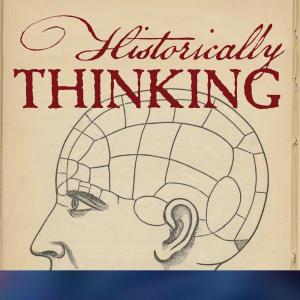Historically Thinking

Episode 382: Women and the Reformations
A forensic reconstruction of Saint Rose of Lima From the early 16th century, and for over two hundred years after that, a series of convulsions within the Christian church of Western Europe led to its splintering, but also to an incredibly rapid movement of ideas and practices to the four corners of the earth. These convulsions—or reformations—were responsible not only for changes in the practice and beliefs of Christianity, but dramatic social and cultural changes everywhere they occurred. Even though these changes have usually been told as the story of men, women were often at the heart of these reformations. On every continent with the exception of Antarctica—which, to be fair, was undiscovered and therefore unpopulated—women drove forward the transformations of religious life. From royal thrones and the homes of prominent reformers, to the monasteries in Peru and the shores of the southernmost home island of Japan, the stories of how women participated in these reformations gives us not only a fuller picture of these extraordinary events, but a new way of thinking about them and defining them. My guest Merry Wiesner-Hanks is distinguished professor of history and women’s and gender studies emerita at the University of Wisconsin-Milwaukee. She is the author or editor of thirty books, the most recent of which is Women and the Reformations: A Global History, which is the subject of our conversation today. For Further Investigation Previous conversations somewhat related to this one are with Ron Rittgers on Luther's reformation; with Tara Nummedal on Anna Ziegelerin and the curious case of the Lion's blood; and with Michael Winship on "the warmer sort of Protestants" "No one expects the Spanish Inquisition!" Herrnhut Jon Sensbach, Rebecca's Revival: Creating Black Christianity in the Atlantic World






 Visit Podcast Website
Visit Podcast Website RSS Podcast Feed
RSS Podcast Feed Subscribe
Subscribe
 Add to MyCast
Add to MyCast